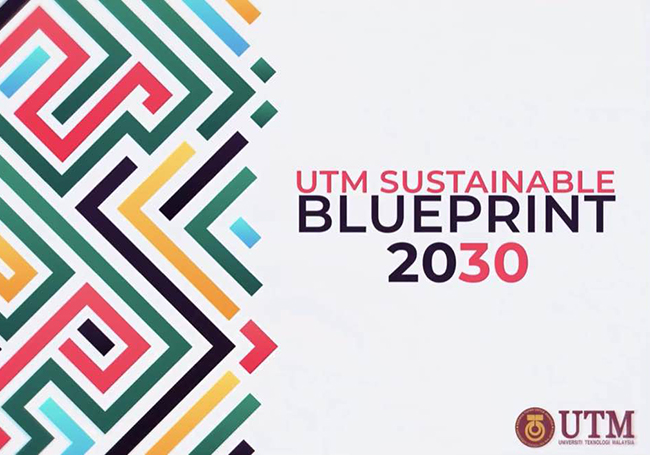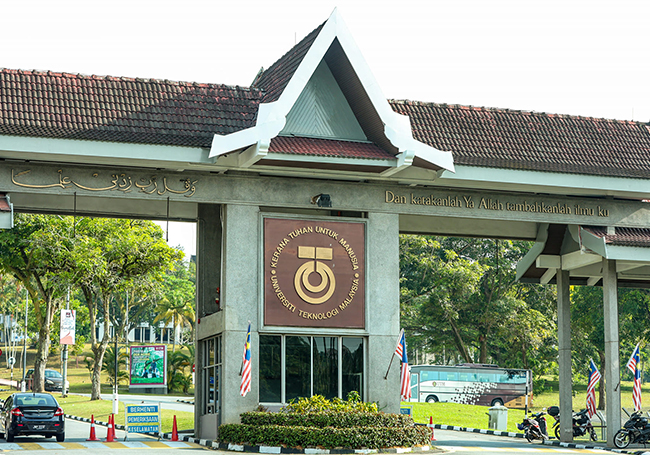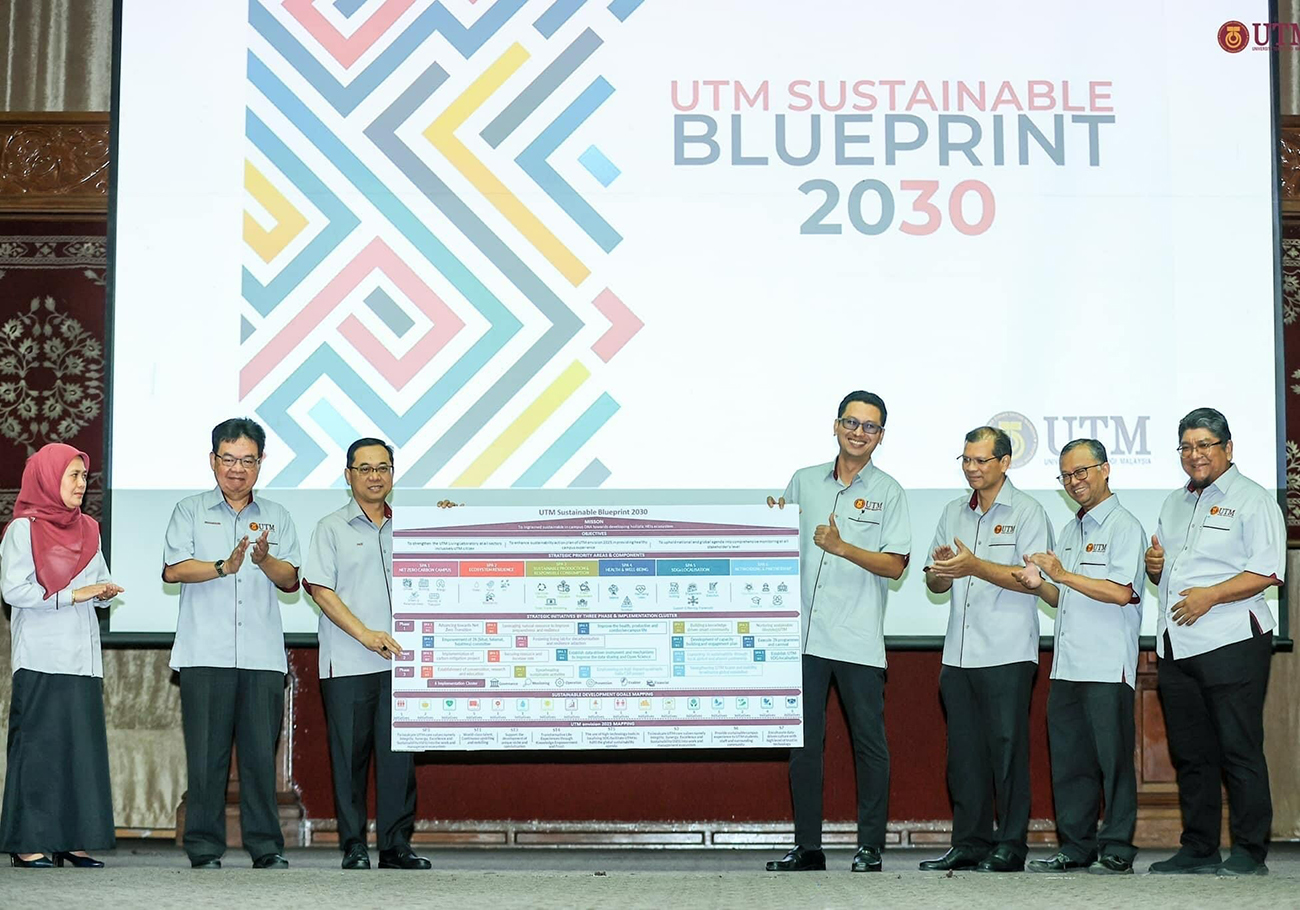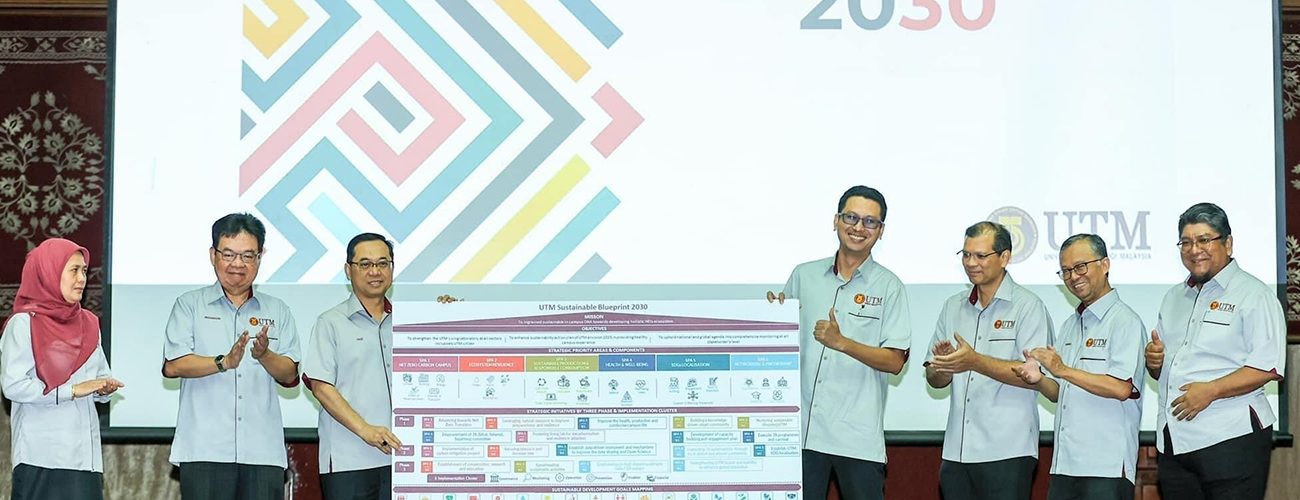
The University Teknologi Malaysia (UTM), a technology-driven university, has launched its sustainable blueprint, “Campus Sustainability Blueprint 2023-2030”. The blueprint aims to support the Malaysian government’s 12th Malaysia Plan (RMK12) and the United Nations’ Sustainable Development Goals (SDGs) by highlighting the UTM’s commitment to sustainability within the campus.
The Vice-chancellor of UTM, Prof Datuk Ir. Ts. Ahmad Fauzi Ismail stated that this blueprint comprises goals and objectives that will drive the UTM community to embrace sustainability as a lifestyle. The university aims to become an institution of higher learning that upholds and empowers sustainability for all its citizens.
The Campus Sustainability Blueprint 2023-2030 identifies six strategic priority areas. These are net zero carbon campuses, ecosystem resilience, sustainable production, responsible CSDGs localization, networks, and partnerships. Open Science through an integrated data-sharing system is one of the key enablers for ensuring the successful implementation of this blueprint and providing a healthy campus experience.

UTM practices a “Whole- institutions approach” in implementing the Blueprint where all parts of the university community, including external stakeholders, are involved in the efforts. The university has successfully adopted the Quadruple Helix approach to achieve this goal.
The UTM Campus Living Lab Framework comprises seven main areas: sustainable arcade, green office, sustainable energy management, cycling centre, green school, green community, sustainable transport, and biodiversity. These designated focuses were meticulously planned to strengthen the interactive linkages within the research-teaching-learning operation.
Net Zero Carbon (NZC) campus practices are essential in the Net Zero Carbon Campus priority area. Establishing a UTM NZC community of practices should position the UTM as a champion in driving NZC initiatives in Malaysia. Low-carbon UTM transportation, such as electric vehicles powered by renewable energy and infrastructure related to low-carbon mobility, will be investigated. Carbon offsetting projects, such as planting trees with high carbon sequestration rates, will also be implemented.
Ecosystem Resilience initiatives focus on water, air, biodiversity, and noise parameters in UTM. The university aims to enhance alternative resource consumption and building design to increase its rate and provide a centralized communication platform for fault reporting. To secure resources, the UTM establishes baseline inventory data and reporting systems. Edu tourism and open campuses should also be promoted to facilitate space-sharing accessibility and engagement in conservation, preparedness, and resilience programs involving stakeholders.

Sustainable Production and Responsible Consumption initiatives focus on increasing the consumption of alternative resources, building design, and creating a centralized communication platform for fault reporting. Edu tourism and open campuses will also be promoted to facilitate space-sharing accessibility and engagement in conservation, preparedness, and resilience programs involving stakeholders.
The Health and Well-being initiative aims to provide instruments for measuring staff quality of life via a survey index by UTM Governance. The UTM Well-being Index can be used as an evidence-based intervention for well-being initiatives. The well-being committee is involved in the planning, enforcement, advisory, monitoring, and reporting of UTM well-being initiatives.
UTM-SDG localization aims to develop a capacity-building and engagement implementation plan by having multi-stakeholder partnerships to establish living labs and volunteer group/clubs. Furthermore, data-driven instruments and mechanisms can be developed as evidence-based policy formulations to improve data sharing and Open Science. Each faculty member will be provided with Application Programming Interfaces (APIs) for sharing real-time and aggregated data to ensure that open data are fundamentally accessible, reliable, reusable, comprehensive, comparable, and interoperable.
UTM participated in the QS Sustainability Ranking for the first time in 2022 and was ranked 181-190 among 700 universities globally. UTM was also announced as the recipient of the Most Environmentally Sustainable Institutions 2023 – Southeast Asia Award Category November 2022 during the QS Higher Ed Summit: Asia Pacific 2022. This award demonstrates the UTM’s dedication to the sustainability agenda and its initiative to spearhead the cross-sector implementation of the SDGs. This continuous effort could be a model for other universities to follow suit with the expectation of alterations made to fit the nature of the environment.











